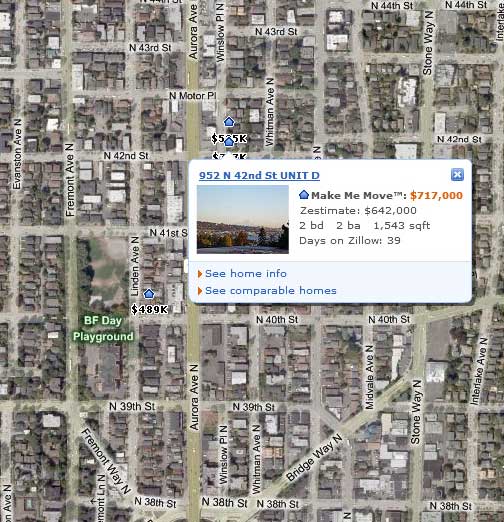My Wife is a Zillow Addict

Get the world’s most fascinating discoveries delivered straight to your inbox.
You are now subscribed
Your newsletter sign-up was successful
Want to add more newsletters?
Join the club
Get full access to premium articles, exclusive features and a growing list of member rewards.
We used to choose cell phones for their basic functionality, carrier quality and maybe relatively unimportant things like color or ring tones. But more and more, it's about apps.
Take, for example, Zillow, an app that rhymes with pillow probably because the company knew my wife would choose one over the other, night after night. She's addicted to the computer version of Zillow, which lets her check home values and property tax rates for any place she can find via Google maps or for which she has an address.
(Zillow is of course just the tip of an information iceberg available online about you and what you own. Nowadays, my wife tells me, once you have a home address, you can find out everything from what the owner paid to how much he owes to what his kids had for lunch yesterday. Of course, she's a full-blown real-estate voyeur, having almost purchased, oh, about a dozen houses in the past 18 months as prices skidded ever downward. If a house is for sale, Zillow satisfies her every craving, even showing her the inside, whether we'll ever live there or not.)
Anyway, now Zillow is available on the iPhone, along with 35,000 other apps (plus countless more that Apple considers illegal). Launch Zillow on the iPhone and it shows you an aerial map and rooftops in the immediate neighborhood, all priced out.
At our house, Macs have long ruled, but we haven't warmed up to iPhones because we like our Verizon cell phone service — the local service center actually fixes problems when you visit them, and we never drop calls — and so we've stuck with the phones Verizon carries ... Treos in recent years and more recently, Blackberries. These phones have been good to us.
But apps are so tomorrow, and no phone has the volume of apps to match the iPhone. As Fortune Magazine's Jeffrey M. O'Brien put it this week: "Businesses ignore the wireless web at their peril. In less than a year, downloadable wireless apps have become the place to be for online vendors, games, and content creators. And the influence of apps is sure to grow." A recent Pew Foundation study estimates that mobile devices will surpass computers as the primary tool for Internet connectivity by 2020, O'Brien writes.
In internet-dog years, I think that's actually, like, next Christmas.
Get the world’s most fascinating discoveries delivered straight to your inbox.
And Zillow is a game changer, I suspect, at least for addicts like my wife. Coupled with GPS on the iPhone, its mobile Zestimates, as they are called, will be zirresistible to her. I am doomed. Soon I expect she will switch carriers to get an iPhone and she'll be able to Zillow on her pillow or, as I imagine things playing out, drive around till the wee hours Zillowing curbside.
Eat your heart out, Twitter and Google. There's a new verb in town.
Oh, and c'mon, Crackberry. You're fast becoming a comparatively appless competitor, but much as I like Macs and would probably like the iPhone, I'm loathe to change, and I don't give a hoot about Zillowing, so I am rooting for you.
Robert Roy Britt is the Editorial Director of Imaginova. In this column, The Water Cooler, he looks at what people are talking about in the world of science and beyond.
Robert is an independent health and science journalist and writer based in Phoenix, Arizona. He is a former editor-in-chief of Live Science with over 20 years of experience as a reporter and editor. He has worked on websites such as Space.com and Tom's Guide, and is a contributor on Medium, covering how we age and how to optimize the mind and body through time. He has a journalism degree from Humboldt State University in California.
 Live Science Plus
Live Science Plus











